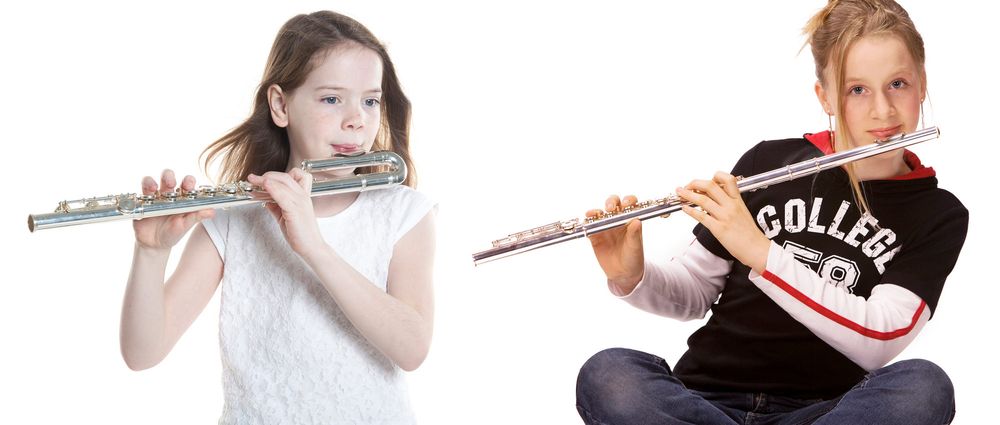13. Purchase Guide
Open hole (ring) keys or closed hole (plateau) keys?
When buying your flute, you have the choice between a flute with ring keys or closed keys. If you opt for a flute with ring keys, your flute will have five keys with open tone holes. Your fingers need to precisely cover these tone holes, and that's not always easy.
Playing with ring keys forces you to adopt the "right" finger posture while playing. Particularly, your left ring finger needs to stretch quite a bit, especially if you have small hands and your flute doesn't have an offset G. Flutes with closed keys are easier to play. Plus, it's simpler to replace the pads.
So, what's the advantage of a flute with ring keys?
Most professionals play a flute with ring keys. Firstly, it's more contemporary, and secondly, it allows for specific playing techniques like glissandos, quarter tones, or multiphonics. These are needed, especially in contemporary music. There's no difference in sound whether you play a flute with ring keys or closed keys.
If you're buying a flute with ring keys but can't reach all the ring keys yet, you have the option to insert plugs into the holes. These will close the keys. So, it's up to you whether you want to close all the ring keys with plugs or only the ones that are hard to reach. Gradually, you can remove the plugs.

Curved or straight headjoint
If you're between six and nine years old, your parents should buy you a child's flute with a curved headjoint. Later, when you're taller and can reach all the keys, you can switch to the straight headjoint.
Do I need a split E-mechanism?
The only reason to buy a flute without an E-mechanism is price. However, in the end, you usually save only around 50EUR. With expensive flutes, the price difference can be up to a 1000EUR.
Which headjoint should I get?
The sound of a flute mainly depends on the headjoint. Try different headjoints on your flute, and you'll notice that your flute sounds different each time. That's why you can also buy headjoints separately. A good silver headjoint helps enhance the sound and responsiveness of your flute. Sometimes, the headjoint can be as expensive as the flute itself. The higher the quality of your instrument, the more choices you have when selecting a headjoint. The nobler the material, like silver or gold, the fuller and rounder your tone will sound. It's essential to note that not every headjoint sounds equally good on every flute. So try, before you buy!
Which material?
In the first couple of years, getting a flute with a nickel-silver alloy is more than enough. Later, if you want to enhance your sound quality, a silver headjoint for your flute is definitely worth the investment.



